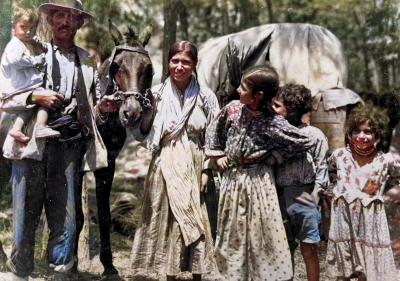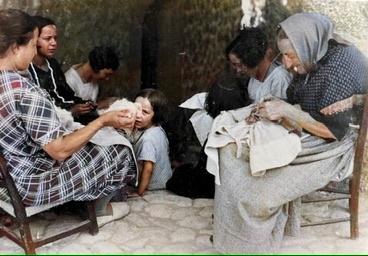In what ways did traditional family structures in Mallorca reinforce the separation of gender roles for children?
Similar Topics
mallorca family structures
gender roles children
traditional gender separation
boys masculinity roles
girls homemaking skills
male head authority
inheritance system mallorca
cultural identity gender
Traditional family structures in Mallorca played a significant role in reinforcing the separation of gender roles for children, deeply rooted in the island's historical and cultural context. In these families, roles were clearly defined along gender lines from an early age. Boys were often encouraged to follow paths aligned with masculinity, such as farming, fishing, or skilled trades, all of which required physical strength and were traditionally considered men’s work. Meanwhile, girls were generally prepared for homemaking and caretaking roles, learning skills like cooking, sewing, and managing household chores. This early division reinforced societal expectations and was supported by both parental guidance and community norms.
The family environment itself often acted as a microcosm of the larger social order, where the authority of the male head of household maintained clear distinctions between the spheres of men and women. Boys were given responsibilities outside the home and in public life, including participation in local markets or communal labor, encouraging independence and social engagement. In contrast, girls’ activities were more likely to be confined to domestic spaces, under the supervision of their mothers or female relatives, emphasizing nurturing and obedience. Additionally, religious and educational institutions in Mallorca historically mirrored these divisions, further embedding distinct roles for boys and girls through separate curricula and moral teachings.
This traditional structuring ensured that from a young age, children understood and internalized their expected roles within the family and society. The inheritance system also played a part, as it typically favored male offspring, thus reinforcing the notion of male responsibility for maintaining family land and wealth. Although modern influences have gradually challenged these norms in Mallorca, the historical family framework did much to sustain a gendered separation of roles that shaped childhood experiences on the island for generations. This traditional model supported the continuity of cultural identity, but also limited the possibilities for children to explore roles beyond those prescribed by gender.
The family environment itself often acted as a microcosm of the larger social order, where the authority of the male head of household maintained clear distinctions between the spheres of men and women. Boys were given responsibilities outside the home and in public life, including participation in local markets or communal labor, encouraging independence and social engagement. In contrast, girls’ activities were more likely to be confined to domestic spaces, under the supervision of their mothers or female relatives, emphasizing nurturing and obedience. Additionally, religious and educational institutions in Mallorca historically mirrored these divisions, further embedding distinct roles for boys and girls through separate curricula and moral teachings.
This traditional structuring ensured that from a young age, children understood and internalized their expected roles within the family and society. The inheritance system also played a part, as it typically favored male offspring, thus reinforcing the notion of male responsibility for maintaining family land and wealth. Although modern influences have gradually challenged these norms in Mallorca, the historical family framework did much to sustain a gendered separation of roles that shaped childhood experiences on the island for generations. This traditional model supported the continuity of cultural identity, but also limited the possibilities for children to explore roles beyond those prescribed by gender.

